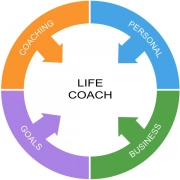5 Strategies for Successfully Questioning Clients as a Life Coach
5 Strategies for Successfully Questioning Clients as a Life Coach
As a life coach, effective questioning is one of the most important tools in your arsenal. The right questions can help you get to the root of your client’s challenges, uncover their strengths and weaknesses, and provide direction and guidance for their future actions. However, not all questions are created equal, and it’s important to use the right strategies to maximize the impact of your questioning.
In this article, we’ll explore five strategies for successfully questioning clients as a life coach, so you can help your clients achieve their goals and reach their full potential.
1. Preparation
Before you begin questioning your client, preparing yourself for the conversation is important. This includes researching your client’s backgrounds, understanding their goals and challenges, and creating a supportive and non-judgmental environment. This will help you tailor your questions to your client’s specific needs and ensure that they feel comfortable and confident during your coaching sessions.
2. Active Listening
Active listening is an essential component of effective questioning. To truly engage with your client, you need to focus fully on the conversation, avoid distractions, and provide feedback and acknowledgment. By actively listening, you’ll gain a deeper understanding of your client’s thoughts and feelings and ask questions tailored to their needs.
3. Open-Ended Questions
Open-ended questions are a powerful tool in life coaching. These types of questions encourage your client to share their thoughts and feelings and allow for a more in-depth exploration of their thoughts and emotions. Open-ended questions help create a sense of openness and collaboration and can provide valuable insights into your client’s challenges and aspirations.
4. Reflective Questions
Reflective questions are designed to help your client examine their thoughts and feelings. By asking these types of questions, you can encourage your client to reflect on their behavior and choices and provide a deeper understanding of their challenges. Reflective questions can help your client gain a greater sense of self-awareness and insight and can be a valuable tool in helping them make positive changes in their life.
5. Strategic Questions
Strategic questions help clients clarify their goals and aspirations and encourage them to identify their strengths and weaknesses. By asking these questions, you can provide direction and guidance for your client’s future actions. Strategic questions are particularly useful when your client is feeling stuck and can help them understand the steps they need to take to achieve their goals.
Conclusion
In conclusion, effective questioning is a critical component of a successful coaching relationship. Using the right strategies can help your client achieve their goals and reach their full potential. Whether you’re using open-ended, reflective, or strategic questions, the key to success is preparation, active listening, and a commitment to helping your clients grow and evolve.










